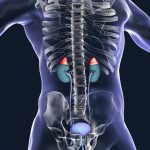Age-Related Cognitive Decline
Kira Schmid, ND
Luke Huber, ND, MBA
Blake Gossard
Lori Feldman, RD, CCRC
The following article is an abridged version of the Age-Related Cognitive Decline chapter that appears in Disease Prevention and Treatment, 5th ed., an integrative health textbook published by Life Extension®.
All aging humans will develop some degree of decline in cognitive capacity as time progresses. Data indicates that deterioration of the biological framework that underlies our ability to think and reason begins as early as the mid-20s and includes a drop in regional brain volume1–5; loss of myelin integrity6,7; cortical thinning8,9; impaired serotonin, acetylcholine, and dopamine receptor binding and signaling10–13; accumulation of neurofibrillary tangles14; and altered concentrations of various brain metabolites.15
Aging causes deterioration of neuronal and mitochondrial membranes, which leads to the loss of cellular integrity and impaired neuronal function.16–18 Steep age-related declines in neurotransmitter synthesis and signaling,19–21 coupled with reductions in synaptic density and plasticity (adaptability),22,23 and loss of as much as 50% of the length of myelinated axons,24 make the brain increasingly less efficient as we age.
However, many of these factors are modifiable to a significant extent, and proactive lifestyle changes, cognitive training, and nutritional interventions have been shown to decrease the rate of intellectual decay and to potentially reverse age-related cognitive decline.
Nutraceuticals to Support Brain Health
Fish Oil
In the brain, omega-3 fatty acids are incorporated liberally into cellular phospholipid bilayers; docosahexaenoic acid (DHA), alone, accounts for 40% of the phospholipid content of neuronal membranes.25 Along with eicosapentaenoic acid (EPA), DHA plays a central role in neurotransmitter signaling and synthesis; together, the omega-3 fatty acids modulate numerous aspects of cognition and behavior.26–28
Evidence suggests that the typical Western diet is severely deficient in beneficial omega-3s, and supplies omega-6s in excess, which creates a fatty acid milieu that promotes inflammation and contributes to several age-related degenerative diseases.29
Slightly less than 2 grams of fish oil daily over a 24-week period was shown to significantly improve scores on a standardized assessment of cognitive function in subjects with mild cognitive impairment.30 Increases in red blood cell EPA confirmed that supplemental fish oil was biologically available and responsible for the improvement in cognition. A similar but longer-term study involving nearly 1500 subjects found that daily omega-3 supplementation was independently associated with a dramatic reduction in cognitive decline over a 1.5-year period in an aging population.31
In addition to numerous studies that have associated increased dietary omega-3 intake with better cognitive performance,32,33 a more detailed study alludes to the principle role of DHA in mediating this effect. Researchers assessed serum phospholipid levels in 280 middle-aged (35-54) healthy study volunteers, which were then correlated to cognitive function.34 It was found that subjects with the highest serum levels of DHA performed significantly better in multiple domains of cognition than their cohorts with lower DHA levels. This association remained significant even after adjustment for various confounding factors.
Blueberries
Multiple animal studies have provided mechanistic insights into the well-documented brain health benefits of blueberry constituents. In addition to strongly attenuating neural oxidative stress, blueberry components also inhibit acetylcholinesterase, an enzyme responsible for catabolizing the important neurotransmitter acetylcholine, thus preserving acetylcholine-related memory and learning.35 Blueberry supplementation also stimulates neurogenesis and enhances neuronal plasticity in the hippocampus, the region of the brain chiefly affected by Alzheimer’s disease.36 Other research has revealed that blueberry compounds may optimize cognitive performance through modulation of genetic expression within the brain.37
These biochemical actions translate into observable improvements in learning, memory, and overall cognitive performance from blueberry supplementation, or dietary fortification with blueberries, in both animal and human studies.38–40
Green Tea Polyphenols
Interest in studying components of tea in the context of brain health was generated by publication of epidemiological evidence that linked increased tea consumption with superior cognitive function in aged populations.41,42 Investigations led to the discovery that powerful tea constituents, including epigallocatechin-3-gallate (EGCG) and other phenolic antioxidants, possess tremendous disease-modifying potential in Alzheimer’s disease and the ability to preserve cognition during aging.43–45
In a double-blind, placebo-controlled trial, co-ingestion of green tea polyphenols and L-theanine, an amino acid found in tea, was shown to improve memory and attention in subjects with mild cognitive impairment.46 Those subjects who consumed the supplement also displayed significantly increased theta brain-wave activity, as measured by electroencephalography (EEG); theta waves are associated with learning and memory.46–48 Similar results were observed in animal models of cognitive impairment, and researchers attributed some of the benefits to the free radical-scavenging ability of green tea polyphenols.49,50 Other research has shown that daily green tea supplementation attenuates age-related cognitive dysfunction in mice, even when treatment is initiated well into adulthood.45
Tea polyphenols and L-theanine may also ameliorate the damaging effects of amyloid-beta proteins. Their accumulation in the brain is the hallmark pathology of Alzheimer’s disease, where they cause severe oxidative stress and neuronal death. Several animal studies have found that EGCG and related catechins suppress amyloid-beta-induced cognitive dysfunction and neurotoxicity.51-53
Green tea supplementation has also been shown to optimize insulin signaling54 and endothelial function,55 which may provide additional neuroprotective benefits. Additional clinical trials have established that daily green tea supplementation favorably modulates multiple other metabolic parameters related to brain health, including body weight and lipid peroxidation.56
Resveratrol
Many researchers believe that at least some of the health benefits of red wine consumption may be due to its modest content of the well-known phenolic antioxidant, resveratrol. In addition to a multitude of evidence in experimental settings suggesting that resveratrol extends lifespan, likely by mimicking the genetic effects of calorie restriction,57 numerous publications also highlight various roles for resveratrol in optimizing brain function.
Resveratrol may benefit the brain via mechanisms including increased synthesis of the growth factors IGF-158 and BDNF59 in the hippocampus, suppressing formation of inflammatory metabolic products within the brain,60,61 reinforcing the integrity of the blood-brain barrier,62 and optimizing overall brain metabolism.64,63 Other studies have shown that resveratrol supplementation preserves cerebrovascular integrity during aging64 and also protects the brain after traumatic brain injury.65
In a double-blind, randomized, placebo-controlled human clinical trial, doses of resveratrol ranging from 250-500 mg were shown to dose-dependently enhance cerebral circulation and brain oxygenation.66 In a trial involving non-human primates, resveratrol supplementation was shown to increase physical activity levels and enhance both working and spatial memory. According to the investigators, “these results suggest that resveratrol could be a good candidate to mimic long-term CR [caloric restriction] effects and support the growing evidences that nutritional interventions can have beneficial effects on brain functions even in adults.”67
B Vitamins
Inside the central nervous system, B-vitamin-dependent reactions are responsible for ensuring the proper function of a vast array of neurochemical processes. When levels of B vitamins – especially B6, B12, and folic acid – are insufficient to optimally support these reactions, consequences such as impaired neurotransmitter synthesis and neurocapillary-damaging hyperhomocysteinemia can result.68
Multiple human studies have associated low plasma levels of B vitamins, and even subclinical deficiencies, with cognitive decline and dementia.69-71 One study showed that in elderly patients, levels of folate correlate positively with the volume of the hippocampus and amygdala, and inversely with white matter hyperintensities, a marker of neuropathology observable upon MRI brain imaging.72
The brain may be the first organ affected by insufficient intake of various other B vitamins, including pantothenic acid, riboflavin, and nicotinamide, since these nutrients are important intermediaries in the mitochondrial oxidative phosphorylation (OXPHOS) pathway – a series of reactions by which chemical energy in the form of adenosine triphosphate (ATP) is produced. The brain produces more energy per volume than any other organ in the body, thus reflecting the sheer number of OXPHOS reactions taking place therein.73-75
Coenzyme Q10
A critical component of the OXPHOS reaction pathway, CoQ10 serves to shuttle electrons between 2 “stations” along the mitochondrial inner membrane on the pathway to ATP formation. Without adequate CoQ10, electron transport may slow, resulting in fewer ATP molecules being produced, and ultimately less available cellular energy.76
CoQ10 supplementation has been shown to improve outcomes in several neurodegenerative disorders involving loss of mitochondrial function, such as Parkinson’s disease, Huntington’s disease, and amyotrophic lateral sclerosis.77,78 Some animal data provides evidence for CoQ10’s potential for preserving cognitive function in conditions such as experimental Alzheimer’s disease.79
Inhibition of HMG-CoA by widely-prescribed cholesterol-lowering statin drugs is known to deplete levels of CoQ10 in the body. Indeed, studies have shown that co-administration of CoQ10 with statins may ameliorate some of the side effects of the drugs,80-82 and individuals with memory complaints who are also taking statin drugs may benefit from supplementation.
Acetyl-L-Carnitine
The amino acids lysine and methionine are biochemically conjoined in vivo to form the compound carnitine. Carnitine is essential for ensuring that fatty acids are transported into the mitochondrial matrix where they fuel aspects of OXPHOS; however, under certain conditions, including age-related cognitive decline, endogenous synthesis may be insufficient to support optimal fatty acid transport. Subsequent to delineation of the role of carnitine in energy production, many researchers began to study the effects of supplementation with carnitine, and its more brain-permeable derivative, acetyl-L-carnitine, upon various energy-demanding systems and reactions in the body.83
Supplementation with carnitine and acetyl-L-carnitine has been well-documented to ameliorate consequences of disease states with widespread implications for health, including type 2 diabetes and stroke.84,85 However, more impressive is the efficacy of acetyl-L-carnitine in supporting brain health and cognition during normal age-related cognitive decline and Alzheimer’s disease. Acetyl-L-carnitine optimizes cognition by acting upon multiple facets of neuronal function, including enhancing efficiency of cholinergic neurotransmission,86 stabilizing neuronal mitochondrial membranes,87 increasing neural antioxidant defenses,88 and enhancing neuron growth through sensitization to neurotrophic factors.89,90
A meta-analysis of randomized, controlled human clinical trials involving data from 21 studies and data for over 1200 subjects with mild cognitive impairment or mild-to-moderate Alzheimer’s disease provides unequivocal evidence that supplementation with acetyl-L-carnitine ameliorates cognitive deficits observed during aging and during pathological brain deterioration.91 The reviewers found that daily doses of acetyl-L-carnitine ranging from 1.5-3.0 g consistently provided a statistically significant benefit over placebo for preserving cognition, as assessed by multiple standardized tests. Moreover, there was a clear trend for a cumulative effect of acetyl-L-carnitine supplementation over time, suggesting that long-term use of acetyl-L-carnitine may provide the greatest benefit.
Phosphatidylserine
Like the omega-3s EPA and DHA, phosphatidylserine is an especially important component of cellular membranes. In the brain, phosphatidylserine conjugates with DHA and helps maintain the proper electrical gradient along neuronal membranes, thus facilitating proper neural communication.92 Human clinical trials have found that orally administered phosphatidylserine in doses ranging from 200-600 mg daily improves cognitive function in aging subjects with cognitive impairment.93-95
Ginkgo Biloba
The leaves of the Ginkgo biloba tree have been highly regarded throughout human history and used as a food additive and as a traditional medicine. Though widely regarded as a nootropic, or cognitive enhancer, human clinical data suggest that supplementation with Ginkgo biloba extract alone, ie, not in combination with other cognitive support ingredients, is minimally effective for improving cognitive function in those with Alzheimer’s disease or cognitive impairment.96 Nonetheless, because studies have shown that supplementation with ginkgo improves cerebral blood flow97 and other cerebrovascular-related aspects of cognition,97 its use in combination with other brain-supporting nutrients may provide synergistic benefits for cognition. Indeed, results from both animal and human studies suggest that when ginkgo is combined with nutrients such as phosphatidylserine, B vitamins, or vitamin E, the combination of ingredients confer cognitive benefits.98,99 In fact, in a study comparing the effects of supplementation with Ginkgo biloba extract alone to Ginkgo biloba extract together with phosphatidylserine, the combination of the 2 ingredients resulted in improvements in at least 2 aspects of memory performance, while ginkgo alone did not.99
Bacopa Monnieri
Bacopa monnieri is rich in free radical-scavenging compounds, including polyphenols and sulfur-based molecules, and so may ameliorate the oxidative stress generated by the brain’s intense metabolic rate.100 It also contains various phytochemicals with known anti-inflammatory properties, such as luteolin and apigenin.101,102
Several human clinical trials have revealed cognitive-enhancing and memory-improving effects of supplementation with Bacopa extract. In one double-blind, placebo-controlled trial, daily doses of 300 mg of Bacopa extract significantly improved visual information-processing speed and memory consolidation, and lessened anxiety in healthy individuals after 12 weeks of supplementation.103 Another double-blind, placebo-controlled study of the same duration and using the same dose of Bacopa extract, found that the benefits extend to elderly subjects as well. In this study, the group receiving Bacopa also fared better on an auditory verbal learning test, and scored lower on anxiety and depression scales than those taking placebo.104 Additional promising results were achieved in a similar study in which healthy adults received either 300 mg of Bacopa extract or placebo daily for 90 days. Improvements in working memory were noted in the Bacopa group, but not in the placebo group.105
Huperzine A
A compound derived from the plant Huperzia serrata, commonly known as clubmoss or firmoss, huperzine A is a well-established inhibitor of the acetylcholinesterase enzyme, a mechanism it shares with many commonly-prescribed pharmaceutical treatments for Alzheimer’s disease.106,107
Huperzine A has been shown to enhance memory in healthy young humans,108 and in a comprehensive literature review it was found that high doses of huperzine A significantly improved scores on standardized cognitive tests in patients with Alzheimer’s disease in a time-dependent manner, with longer duration of supplementation leading to better results.109
Glyceryl Phosphoryl Choline
Glyceryl phosphoryl choline (GPC) is a form of choline naturally present in cells. Among aging adults, the rationale for GPC therapy goes back to the hypothesis, developed more than 30 years ago, that declining levels of acetylcholine – and a concurrent decrease in the number of neurons that are its intended target – are responsible for a range of cognitive deficits.110 Acetylcholine is an essential neurotransmitter involved in muscle control, sleep, and cognition. Research has shown that GPC is a precursor of acetylcholine that is safe and well-tolerated.111 A review of 13 published studies, involving more than 4000 participants, found that patients taking GPC exhibited neurological improvement that was superior to placebo and “superior or equivalent” to that obtained with prescription drugs. The same authors found that GPC was superior to choline and lecithin and that it deserved wider study as a therapy for stroke patients seeking to regain cognitive function.112
Vinpocetine
A semisynthetic derivative of the lesser periwinkle plant (Vinca minor), vinpocetine has been shown to exert a variety of biological effects that may benefit brain health. It has been shown in an animal model to regulate the action of sodium in neurons, lessen the damaging effects of hypoxia, and mitigate oxidative stress.113 In another animal study, vinpocetine was shown to blunt the activity of the enzyme phosphodiesterase-1, an effect which may increase neuronal energy by upregulating the energy “throttle” cyclic AMP.114 Also, vinpocetine itself has demonstrated the ability to neutralize particularly damaging hydroxyl radicals.115 Moreover, vinpocetine supports healthy blood flow by enhancing vasodilation and blunting platelet aggregation – effects that may enhance cerebral circulation.116,117 Indeed, human clinical trials show that large doses of IV vinpocetine, followed by 3 months of oral supplementation with 30 mg vinpocetine, improves blood flow in patients with chronic cardiovascular disease.118
Multi-Vitamin
In a randomized, controlled trial involving over 200 healthy middle-aged individuals, subjects were given either a multi-vitamin or placebo for more than 2 months, and both groups were then assessed for cognitive function.119 It was shown that those taking the multi-vitamin displayed less fatigue during extended cognitive challenges, and were also more accurate. Also, those taking multi-vitamins were able to more quickly complete mathematical processing tests than subjects receiving placebo.119
Suggestions
Based on clinical research to-date, the following dose ranges appear to offer the most benefit in the prevention of age-related cognitive decline:
- Fish oil: 2-6 g daily (minimum of 1400 mg EPA and 1000 mg of DHA)
- Glyceryl phosphoryl choline: 600 mg daily
- Phosphatidylserine: 100-200 mg daily
- Vinpocetine: 15-30 mg daily
- Acetyl-L-carnitine: 1500-3000 mg daily
- Trans-Resveratrol: 250-500 mg daily
- Blueberry; standardized extract: 500-1000 mg daily
- Green tea; standardized extract: 725-1450 mg daily
- Huperzine A: 50-100 µg daily
- B-vitamin complex: Per label instructions
- Complete multi-vitamin: Per label instructions
- CoQ10 (as ubiquinol): 100-300 mg daily
- Bacopa; standardized extract: 450-900 mg daily
- Ginkgo biloba; standardized extract: 120 mg daily
In addition, the following blood testing resources may be helpful:
- CoQ10 (Coenzyme Q10)
- Complete Blood Count (CBC)
- Testosterone
- Estrogen
- DHEA
- Pregnenolone
- Homocysteine
- C-Reactive Protein
- Vitamin D
More information on the integrative interventions and lab tests mentioned in this article is available from Life Extension®, an organization dedicated to scientific innovation. To receive a FREE copy of Life Extension magazine visit www.lifeextension.com/Book7 or call toll-free (1-866-606-9803) and mention discount code DPT507A.
Mr Gossard, Ms Feldman, Dr Schmid, and Dr Huber contribute to the development of evidence-based chapters for the integrative health textbook, Disease Prevention and Treatment.
Blake Gossard is the chief editor of Life Extension’s Disease Prevention and Treatment textbook. He was born and raised in Ohio, and now lives in Fort Lauderdale, FL, with his wife and daughter.
 Lori Feldman, RD, CCRC, is the managing editor of Life Extension’s Disease Prevention and Treatment textbook. She graduated magna cum laude from Florida International University in Miami, FL, and currently resides in Fort Lauderdale.
Lori Feldman, RD, CCRC, is the managing editor of Life Extension’s Disease Prevention and Treatment textbook. She graduated magna cum laude from Florida International University in Miami, FL, and currently resides in Fort Lauderdale.
Kira Schmid, ND, received her doctorate in  naturopathic medicine from Bastyr University in Seattle, WA. Dr Schmid is Scientific Director for Life Extension, and she is often heard on national and regional health programs, as well as being a frequent contributor to widely-read health and wellness publications.
naturopathic medicine from Bastyr University in Seattle, WA. Dr Schmid is Scientific Director for Life Extension, and she is often heard on national and regional health programs, as well as being a frequent contributor to widely-read health and wellness publications.
 Luke Huber, ND, MBA, is Vice-President of Product Innovation and Scientific Development at Life Extension. He received his doctorate from Bastyr University, completed hospital-based residency at Cancer Treatment Centers of America’s flagship hospital near Chicago, IL, and received his Master of Business Administration from the University of Massachusetts – Amherst with high honors.
Luke Huber, ND, MBA, is Vice-President of Product Innovation and Scientific Development at Life Extension. He received his doctorate from Bastyr University, completed hospital-based residency at Cancer Treatment Centers of America’s flagship hospital near Chicago, IL, and received his Master of Business Administration from the University of Massachusetts – Amherst with high honors.
References:
- Pieperhoff P, Homke L, Schneider F, et al. Deformation field morphometry reveals age-related structural differences between the brains of adults up to 51 years. J Neurosci. 2008;28(4):828-842.
- Allen JS, Bruss J, Brown CK, Damasio H. Normal neuroanatomical variation due to age: the major lobes and a parcellation of the temporal region. Neurobiol Aging. 2005;26(9):1245-1260; discussion 1279-82.
- Fotenos AF, Snyder AZ, Girton LE, et al. Normative estimates of cross-sectional and longitudinal brain volume decline in aging and AD. Neurology. 2005;64(6):1032-1039.
- Kruggel F. MRI-based volumetry of head compartments: normative values of healthy adults. Neuroimage. 2006;30(1):1-11.
- Sowell ER, Peterson BS, Thompson PM, et al. Mapping cortical change across the human life span. Nat Neurosci. 2003;6(3):309-315.
- Hsu JL, Leemans A, Bai CH, et al. Gender differences and age-related white matter changes of the human brain: a diffusion tensor imaging study. Neuroimage. 2008;39(2):566-577.
- Sullivan EV, Pfefferbaum A. Diffusion tensor imaging and aging. Neurosci Biobehav Rev. 2006;30(6):749-761.
- Magnotta VA, Andreasen NC, Schultz SK, et al. Quantitative in vivo measurement of gyrification in the human brain: changes associated with aging. Cereb Cortex. 1999;9(2):151-160.
- Salat DH, Buckner RL, Snyder AZ, et al. Thinning of the cerebral cortex in aging. Cereb Cortex. 2004;14(7):721-730.
- Sheline YI, Mintun MA, Moerlein SM, Snyder AZ. Greater loss of 5-HT(2A) receptors in midlife than in late life. Am J Psychiatry. 2002;159(3):430-435.
- Erixon-Lindroth N et al. The role of the striatal dopamine transporter in cognitive aging. Psychiatry Res. 2005 Jan 30;138(1):1-12.
- Volkow ND, Logan J, Fowler JS, et al. Association between age-related decline in brain dopamine activity and impairment in frontal and cingulate metabolism. Am J Psychiatry. 2000;157(1):75-80.
- Del Arco A, Segovia G, de Blas M, et al. Prefrontal cortex, caloric restriction and stress during aging: studies on dopamine and acetylcholine release, BDNF and working memory. Behav Brain Res. 2011;216(1):136-145.
- Del Tredici K, Braak H. Neurofibrillary changes of the Alzheimer type in very elderly individuals: neither inevitable nor benign: Commentary on “No disease in the brain of a 115-year-old woman”. Neurobiol Aging. 2008;29(8):1133-1136.
- Kadota T, Horinouchi T, Kuroda C. Development and aging of the cerebrum: assessment with proton MR spectroscopy. AJNR Am J Neuroradiol. 2001;22(1):128-135.
- Horie H, Ikuta S, Takenaka T. Membrane elasticity of mouse dorsal root ganglion neurons decreases with aging. FEBS Lett. 1990;269(1):23-25.
- Sato Y, Endo T. Alteration of brain glycoproteins during aging. Geriatr Gerontol Int. 2010;10 Suppl 1:S32-S40.
- Solsona-Sancho C, Blasi-Cabus JM. [Neuronal membrane and aging. Electrophysiological aspects]. Rev Neurol. 1999;29(11):1083-1088. [Article in Spanish]
- Hoekzema E, Herance R, Rojas S, at al. The effects of aging on dopaminergic neurotransmission: a microPET study of [11C]-raclopride binding in the aged rodent brain. Neuroscience. 2010;171(4):1283-1286.
- Backman L, Lindenberger U, Li SC, Nyberg L. Linking cognitive aging to alterations in dopamine neurotransmitter functioning: recent data and future avenues. Neurosci Biobehav Rev. 2010;34(5):670-677.
- Rot Dzh. [Changes in hormone and neurotransmitter action with aging]. Fiziol Zh. 1990;36(5):82-89. [Article in Russian]
- Chen S, Hillman DE. Dying-back of Purkinje cell dendrites with synapse loss in aging rats. J Neurocytol. 1999;28(3):187-196.
- Sametsky EA, Disterhoft JF, Geinisman Y, Nicholson DA. Synaptic strength and postsynaptically silent synapses through advanced aging in rat hippocampal CA1 pyramidal neurons. Neurobiol Aging. 2010;31(5):813-825.
- Rabbitt P, Lowe C, Shilling V. Frontal tests and models for cognitive ageing. Eur J Cogn Psychol. 2001;13(1-2):5-28.
- Simopoulos AP. Evolutionary aspects of diet: the omega-6/omega-3 ratio and the brain. Mol Neurobiol. 2011;44(2):203-215.
- Davis PF, Ozias MK, Carson SE, et al. Dopamine receptor alterations in female rats with diet-induced decreased brain docosahexaenoic acid (DHA): interactions with reproductive status. Nutr Neurosci. 2010;13(4):161-169.
- Liu C, Cai WX. [Progress on relationship between omega-3 polyunsaturated fatty acids and violent-aggressive behavior]. Fa Yi Xue Za Zhi. 2010;26(6):454-459. [Article in Chinese]
- Heinrichs SC. Dietary omega-3 fatty acid supplementation for optimizing neuronal structure and function. Mol Nutr Food Res. 2010;54(4):447-456.
- Simopoulos AP. Evolutionary aspects of the dietary omega-6:omega-3 fatty acid ratio: medical implications. World Rev Nutr Diet. 2009;100:1-21.
- Chiu CC, Su KP, Cheng TC, et al. The effects of omega-3 fatty acids monotherapy in Alzheimer’s disease and mild cognitive impairment: a preliminary randomized double-blind placebo-controlled study. Prog Neuropsychopharmacol Biol Psychiatry. 2008;32(6):1538-1544.
- Gao Q, Niti M, Feng L, et al. Omega-3 polyunsaturated fatty acid supplements and cognitive decline: Singapore Longitudinal Aging Studies. J Nutr Health Aging. 2011;15(1):32-35.
- Dangour AD, Allen E, Elbourne D, et al. Fish consumption and cognitive function among older people in the UK: baseline data from the OPAL study. J Nutr Health Aging. 2009;13(3):198-202.
- Nurk E, Drevon CA, Refsum H, et al. Cognitive performance among the elderly and dietary fish intake: the Hordaland Health Study. Am J Clin Nutr. 2007;86(5):1470-1478.
- Muldoon MF, Ryan CM, Sheu L, et al. Serum phospholipid docosahexaenonic acid is associated with cognitive functioning during middle adulthood. J Nutr. 2010;140(4):848-853.
- Papandreou MA, Dimakopoulou A, Linardaki ZI, et al. Effect of a polyphenol-rich wild blueberry extract on cognitive performance of mice, brain antioxidant markers and acetylcholinesterase activity. Behav Brain Res. 2009;198(2):352-358.
- Casadesus G, Shukitt-Hale B, Stellwagen HM, et al. Modulation of hippocampal plasticity and cognitive behavior by short-term blueberry supplementation in aged rats. Nutr Neurosci. 2004;7(5-6):309-316.
- Milbury PE, Kalt W. Xenobiotic metabolism and berry flavonoid transport across the blood-brain barrier. J Agric Food Chem. 2010;58(7):3950-3956.
- Krikorian R, Shidler MD, Nash TA, et al. Blueberry supplementation improves memory in older adults. J Agric Food Chem. 2010;58(7):3996-4000.
- Joseph JA, Shukitt-Hale B, Denisova NA, et al. Reversals of age-related declines in neuronal signal transduction, cognitive, and motor behavioral deficits with blueberry, spinach, or strawberry dietary supplementation. J Neurosci. 1999;19(18):8114-8121.
- Malin DH, Lee DR, Goyarzu P, et al. Short-term blueberry-enriched diet prevents and reverses object recognition memory loss in aging rats. Nutrition. 2011;27(3):338-342.
- Ng TP, Feng L, Niti M, et al. Tea consumption and cognitive impairment and decline in older Chinese adults. Am J Clin Nutr. 2008;88(1):224-231.
- Feng L, Gwee X, Kua EH, Ng TP. Cognitive function and tea consumption in community dwelling older Chinese in Singapore. J Nutr Health Aging. 2010;14(6):433-438.
- Lee JW, Lee YK, Ban JO, et al. Green tea (-)-epigallocatechin-3-gallate inhibits beta-amyloid-induced cognitive dysfunction through modification of secretase activity via inhibition of ERK and NF-kappaB pathways in mice. J Nutr. 2009;139(10):1987-1993.
- Mandel SA, Amit T, Weinreb O, et al. Simultaneous manipulation of multiple brain targets by green tea catechins: a potential neuroprotective strategy for Alzheimer and Parkinson diseases. CNS Neurosci Ther. 2008;14(4):352-365.
- Unno K, Ishikawa Y, Takabayashi F, et al. Daily ingestion of green tea catechins from adulthood suppressed brain dysfunction in aged mice. Biofactors. 2008;34(4):263-271.
- Park SK, Jung IC, Lee WK, et al. A combination of green tea extract and l-theanine improves memory and attention in subjects with mild cognitive impairment: a double-blind placebo-controlled study. J Med Food. 2011;14(4):334-343.
- Vertes RP. Hippocampal theta rhythm: a tag for short-term memory. Hippocampus. 2005;15(7):923-935.
- Buzsaki G. Theta oscillations in the hippocampus. Neuron. 2002;33(3):325-340.
- Xu Y, Zhang JJ, Xiong L, et al. Green tea polyphenols inhibit cognitive impairment induced by chronic cerebral hypoperfusion via modulating oxidative stress. J Nutr Biochem. 2010;21(8):741-748.
- Chen WQ, Zhao XL, Hou Y, et al. Protective effects of green tea polyphenols on cognitive impairments induced by psychological stress in rats. Behav Brain Res. 2009;202(1):71-76.
- Kim TI, Lee YK, Park SG, et al. l-Theanine, an amino acid in green tea, attenuates beta-amyloid-induced cognitive dysfunction and neurotoxicity: reduction in oxidative damage and inactivation of ERK/p38 kinase and NF-kappaB pathways. Free Radic Biol Med. 2009;47(11):1601-1610.
- Rezai-Zadeh K, Arendash GW, Hou H, et al. Green tea epigallocatechin-3-gallate (EGCG) reduces beta-amyloid mediated cognitive impairment and modulates tau pathology in Alzheimer transgenic mice. Brain Res. 2008;1214:177-187.
- Haque AM, Hashimoto M, Katakura M, et al. Green tea catechins prevent cognitive deficits caused by Abeta1-40 in rats. J Nutr Biochem. 2008;19(9):619-626.
- Hininger-Favier I, Benaraba R, Coves S, et al. Green tea extract decreases oxidative stress and improves insulin sensitivity in an animal model of insulin resistance, the fructose-fed rat. J Am Coll Nutr. 2009;28(4):355-361.
- Alexopoulos N, Vlachopoulos C, Aznaouridis K, et al. The acute effect of green tea consumption on endothelial function in healthy individuals. Eur J Cardiovasc Prev Rehabil. 2008;15(3):300-305.
- Basu A, Sanchez K, Leyva MJ, et al. Green tea supplementation affects body weight, lipids, and lipid peroxidation in obese subjects with metabolic syndrome. J Am Coll Nutr. 2010;29(1):31-40.
- Agarwall B, Baur JA. Resveratrol and life extension. Ann N Y Acad Sci. 2011;1215:138-143.
- Harada N, Zhao J, Kurihara H, et al. Resveratrol improves cognitive function in mice by increasing production of insulin-like growth factor-I in the hippocampus. J Nutr Biochem. 2011;22(12):1150-1159.
- Rahvar M, Nikseresht M, Shafiee SM, et al. Effect of oral resveratrol on the BDNF gene expression in the hippocampus of the rat brain. Neurochem Res. 2011;36(5):761-765.
- Chiavaroli A, Brunetti L, Orlando G, et al. Resveratrol inhibits isoprostane production in young and aged rat brain. J Biol Regul Homeost Agents. 2010;24(4):441-446.
- Zhang F, Liu J, Shi JS. Anti-inflammatory activities of resveratrol in the brain: role of resveratrol in microglial activation. Eur J Pharmacol. 2010;636(1-3):1-7.
- Lin YL, Chang HC, Chen TL, et al. Resveratrol protects against oxidized LDL-induced breakage of the blood-brain barrier by lessening disruption of tight junctions and apoptotic insults to mouse cerebrovascular endothelial cells. J Nutr. 2010;140(12):2187-2192.
- Li H, Yan Z, Zhu J, et al. Neuroprotective effects of resveratrol on ischemic injury mediated by improving brain energy metabolism and alleviating oxidative stress in rats. Neuropharmacology. 2011;60(2-3):252-258.
- Oomen CA, Farkas E, Roman V, et al. Resveratrol preserves cerebrovascular density and cognitive function in aging mice. Front Aging Neurosci. 2009 Dec 9;1:4.
- Singleton RH, Yan HQ, Fellows-Mayle W, Dixon CE. Resveratrol attenuates behavioral impairments and reduces cortical and hippocampal loss in a rat controlled cortical impact model of traumatic brain injury. J Neurotrauma. 2010;27(6):1091-1099.
- Kennedy DO, Wightman EL, Reay JL, et al. Effects of resveratrol on cerebral blood flow variables and cognitive performance in humans: a double-blind, placebo-controlled, crossover investigation. Am J Clin Nutr. 2010;91(6):1590-1597.
- Dal-Pan A, Pifferi F, Marchal J, et al. Cognitive performances are selectively enhanced during chronic caloric restriction or resveratrol supplementation in a primate. PLoS One. 2011;6(1):e16581.
- Selhub J, Troen A, Rosenberg IH. B vitamins and the aging brain. Nutr Rev. 2010;68 Suppl 2:S112-S118.
- Tucker KL, Qiao N, Scott T, et al. High homocysteine and low B vitamins predict cognitive decline in aging men: the Veterans Affairs Normative Aging Study. Am J Clin Nutr. 2005;82(3):627-635.
- Haan MN, Miller JW, Aiello AE, et al. Homocysteine, B vitamins, and the incidence of dementia and cognitive impairment: results from the Sacramento Area Latino Study on Aging. Am J Clin Nutr. 2007;85(2):511-517.
- Quadri P, Fragiacomo C, Pezzati R, et al. Homocysteine and B vitamins in mild cognitive impairment and dementia. Clin Chem Lab Med. 2005;43(10):1096-1100.
- Scott TM, Tucker KL, Bhadelia A, et al. Homocysteine and B vitamins relate to brain volume and white-matter changes in geriatric patients with psychiatric disorders. Am J Geriatr Psychiatry. 2004;12(6):631-638.
- Shoffner JM, Wallace D. Oxidative phosphorylation diseases. In: Scriver CR, Beaudet AL, Sly WS, et al, eds. The Metabolic and Molecular Bases of Inherited Disease. New York, NY: McGraw-Hill; 1995.
- Ames BN. Delaying the mitochondrial decay of aging. Ann N Y Acad Sci. 2004;1019:406-411.
- Kidd PM. Neurodegeneration from mitochondrial insufficiency: nutrients, stem cells, growth factors, and prospects for brain rebuilding using integrative management. Altern Med Rev. 2005;10(4):268-293.
- Berg JM, Tymoczko JL, Stryer L. Chapter 18: Oxidative Phosphorylation. In: Biochemistry. 5th New York: W. H. Freeman and Company; 2002.
- Mancuso M, Orsucci D, Volpi L, et al. Coenzyme Q10 in neuromuscular and neurodegenerative disorders. Curr Drug Targets. 2010;11(1):111-121.
- Galpern WR, Cudkowicz ME. Coenzyme Q treatment of neurodegenerative diseases of aging. Mitochondrion. 2007;7 Suppl:S146-S153.
- Yang X, Yang Y, Li G, et al. Coenzyme Q10 attenuates beta-amyloid pathology in the aged transgenic mice with Alzheimer presenilin 1 mutation. J Mol Neurosci. 2008;34(2):165-171.
- Traustadottier T, Stock AA, Harman SM. High-dose statin use does not impair aerobic capacity or skeletal muscle function in older adults. Age (Dordr). 2008;30(4):283-291.
- Hamilton SJ, Chew GT, Watts GF. Coenzyme Q10 improves endothelial dysfunction in statin-treated type 2 diabetic patients. Diabetes Care. 2009;32(5):810-812.
- Kettawan A, Takahashi T, Kongkachuichai R, et al. Protective effects of coenzyme q(10) on decreased oxidative stress resistance induced by simvastatin. J Clin Biochem Nutr. 2007;40(3):194-202.
- Zammit VA, Ramsay RR, Bonomini M, Arduini A. Carnitine, mitochondrial function and therapy. Adv Drug Deliv Rev. 2009;61(14):1353-1362.
- Mynatt RL. Carnitine and type 2 diabetes. Diabetes Metab Res Rev. 2009;25 Suppl 1:S45-S49.
- Hota KB, Hota SK, Chaurasia OP, Singh SB. Acetyl-L-carnitine-mediated neuroprotection during hypoxia is attributed to ERK1/2-Nrf2-regulated mitochondrial biosynthesis. Hippocampus. 2012;22(4): 723-736.
- Ando S, Tadenuma T, Tanaka Y, et al. Enhancement of learning capacity and cholinergic synaptic function by carnitine in aging rats. J Neurosci Res. 2001;66(2):266-271.
- Barhwal K, Hota SK, Prasad D, et al. Hypoxia-induced deactivation of NGF-mediated ERK1/2 signaling in hippocampal cells: neuroprotection by acetyl-L-carnitine. J Neurosci Res. 2008;86(12):2705-2721.
- Alves E, Binienda Z, Carvalho F, et al. Acetyl-L-carnitine provides effective in vivo neuroprotection over 3,4-methylenedioximethamphetamine-induced mitochondrial neurotoxicity in the adolescent rat brain. Neuroscience. 2009;158(2):514-523.
- Taglialatela G, Angelucci L, Ramacci MT, et al. Acetyl-L-carnitine enhances the response of PC12 cells to nerve growth factor. Brain Res Dev Brain Res. 1991;59(2):221-230.
- Taglialatela G, Navarra D, Olivi A, et al. Neurite outgrowth in PC12 cells stimulated by acetyl-L-carnitine arginine amide. Neurochem Res. 1995;20(1):1-9.
- Montgomery SA, Thal LJ, Amrein R. Meta-analysis of double blind randomized controlled clinical trials of acetyl-L-carnitine versus placebo in the treatment of mild cognitive impairment and mild Alzheimer’s disease. Int Clin Psychopharmacol. 2003;18(2):61-71.
- Kidd PM. Alzheimer’s disease, amnestic mild cognitive impairment, and age-associated memory impairment: current understanding and progress toward integrative prevention. Altern Med Rev. 2008;13(2):85-115.
- Richter Y, Herzog Y, Cohen T, Steinhart Y. The effect of phosphatidylserine-containing omega-3 fatty acids on memory abilities in subjects with subjective memory complaints: a pilot study. Clin Interv Aging. 2010;5:313-316.
- Kato-Kataoka A, Sakai M, Ebina R, et al. Soybean-derived phosphatidylserine improves memory function of the elderly Japanese subjects with memory complaints. J Clin Biochem Nutr. 2010;47(3):246-255.
- Vakhapova V, Cohen T, Richter Y, et al. Phosphatidylserine containing omega-3 fatty acids may improve memory abilities in non-demented elderly with memory complaints: a double-blind placebo-controlled trial. Dement Geriatr Cogn Disord. 2010;29(5):467-474.
- Birks J, Grimley Evans J. Ginkgo biloba for cognitive impairment and dementia. Cochrane Database Syst Rev. 2009 Jan 21;(1):CD003120.
- Mashayekh A, Pham DL, Yousem DM, et al. Effects of Ginkgo biloba on cerebral blood flow assessed by quantitative MR perfusion imaging: a pilot study. Neuroradiology. 2011;53(3):185-191.
- Araujo JA, Landsberg GM, Milgram NW, Miolo A. Improvement of short-term memory performance in aged beagles by a nutraceutical supplement containing phosphatidylserine, Ginkgo biloba, vitamin E, and pyridoxine. Can Vet J. 2008;49(4):379-385.
- Kennedy DO, Haskell CF, Mauri PL, Scholey AB. Acute cognitive effects of standardised Ginkgo biloba extract complexed with phosphatidylserine. Hum Psychopharmacol. 2007;22(4):199-210.
- Dhanasekaran M, Tharakan B, Holcomb LA, et al. Neuroprotective mechanisms of ayurvedic antidementia botanical Bacopa monniera. Phytother Res. 2007;21(10):965-969.
- Bhandari P, Kumar N, Singh B, Kaul VK. Bacosterol glycoside, a new 13,14-seco-steroid glycoside from Bacopa monnieri. Chem Pharm Bull (Tokyo). 2006;54(2):240-241.
- Deepak M, Sangli GK, Arun PC, Amit A. Quantitative determination of the major saponin mixture bacoside A in Bacopa monnieri by HPLC. Phytochem Anal. 2005;16(1):24-29.
- Stough C, Lloyd J, Clarke J, et al. The chronic effects of an extract of Bacopa monniera (Brahmi) on cognitive function in healthy human subjects. Psychopharmacology (Berl). 2001;156(4):481-484.
- Calabrese C, Gregory WL, Leo M, et al. Effects of a standardized Bacopa monnieri extract on cognitive performance, anxiety, and depression in the elderly: a randomized, double-blind, placebo-controlled trial. J Altern Complement Med. 2008;14(6):707-713.
- Stough C, Downey LA, Lloyd J, et al. Examining the nootropic effects of a special extract of Bacopa monniera on human cognitive functioning: 90 day double-blind placebo-controlled randomized trial. Phytother Res. 2008;22(12):1629-1634.
- Kitisripanya N, Saparpakorn P, Wolschann P, Hannongbua S. Binding of huperzine A and galanthamine to acetylcholinesterase, based on ONIOM method. Nanomedicine. 2011;7(1):60-68.
- Myers TM, Sun W, Saxena A, et al. Systemic administration of the potential countermeasure huperzine reversibly inhibits central and peripheral acetylcholinesterase activity without adverse cognitive-behavioral effects. Pharmacol Biochem Behav. 2010;94(3):477-481.
- Sun QQ, Xu SS, Pan JL, et al. Huperzine-A capsules enhance memory and learning performance in 34 pairs of matched adolescent students. Zhongguo Yao Li Xue Bao. 1999;20(7):601-603.
- Wang BS, Wang H, Wei ZH, et al. Efficacy and safety of natural acetylcholinesterase inhibitor huperzine A in the treatment of Alzheimer’s disease: an updated meta-analysis. J Neural Transm. 2009;116(4):457-465.
- Koistinaho M, Koistinaho J. Interactions between Alzheimer’s disease and cerebral ischemia–focus on inflammation. Brain Res Brain Res Rev. 2005;48(2):240-250.
- Amenta F, Tayebati SK, Vitali D, et al. Association with the cholinergic precursor choline alphoscerate and the cholinesterase inhibitor rivastigmine: An approach for enhancing cholinergic neurotransmission. Mech Ageing Dev. 2006;127(2):173-179.
- Parnetti L, Amenta F, Gallai V. Choline alphoscerate in cognitive decline and in acute cerebrovascular disease: an analysis of published clinical data. Mech Ageing Dev. 2001;122(16):2041-2055.
- Molnar P, Erdo SL. Vinpocetine is as potent as phenytoin to block voltage-gated Na+ channels in rat cortical neurons. Eur J Pharmacol. 1995;273(3):303-306.
- Chiu PJ, Tetzloff G, Ahn HS, Sybertz EJ. Comparative effects of vinpocetine and 8-Brcyclic GMP on the contraction and 45Cafluxes in the rabbit aorta. Am J Hypertens. 1988;1(3 Pt 1):262-268.
- Stolc S. Indole derivatives as neuroprotectants. Life Sci. 1999;65(18-19):1943-1950.
- Osawa M, Maruyama S. Effects of TCV-3B (vinpocetine) on blood viscosity in ischemic cerebrovascular diseases. Ther Hung. 1985;33(1):7-12.
- Kuzuya F. Effects of vinpocetine on platelet aggregability and erythrocyte deformability. Ther Hung. 1985;33(1):22-34.
- Feher G, Koltai K, Kesmarky G, et al. Effect of parenteral or oral vinpocetine on the hemorheological parameters of patients with chronic cerebrovascular diseases. Phytomedicine. 2009;16(2-3):111-117.
- Haskell CF, Robertson B, Jones E, et al. Effects of a multi-vitamin/mineral supplement on cognitive function and fatigue during extended multi-tasking. Hum Psychopharmacol. 2010;25(6):448-461.










